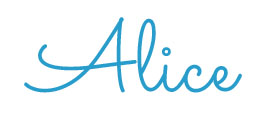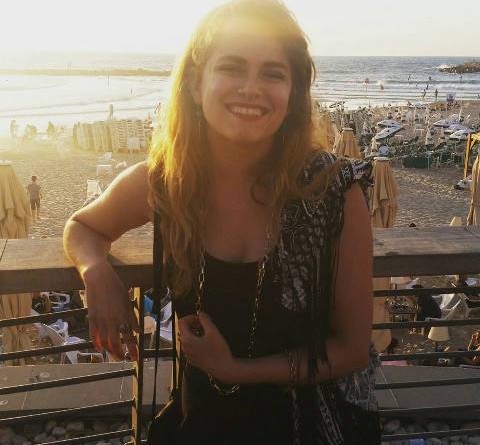The Impact of Israel’s Segregated Education System on Women and Girls: A Lesson in Solidarity from Lod
By Alexandra Menter
Alice’s theme for this month is sisterhood, a word that’s meaning has changed considerably for me since coming to Israel (otherwise known as historic Palestine to its native Palestinian-Arab population). Since October of 2016, six other young people and I have been living, volunteering, and learning in Lod, a mid-sized mixed Jewish and Arab city near Tel Aviv with a painful past and a somewhat uncertain future. In Lod, I volunteer with non-profits and schools in Ramat Eshkol, an Arab neighborhood in Lod with a Jewish minority. Nearly all of my placements involve working with women or girls in some capacity. I sit in a Jewish and Arab women’s group that does activities and discusses social justice, I work in an Arab school where many of my students are girls, and a woman runs the urban redevelopment nonprofit where I also work.
These experiences have forced me to confront how important it is for American women to educate ourselves on how we can support our struggles against patriarchy while maintaining sensitivity toward race, religion, and culture. Admittedly, I love to pride myself on my intersectional feminism, and I like to believe that I know what it means to be a good ally to communities of women (American or otherwise) that are not my own. It was not until I came to Lod, however, that I realized I knew nothing about anything related to women’s empowerment in Israel, particularly when it came to Arab women who are citizens of the state.
In my first year as an undergrad, I learned that education is one of the most important tools that low income and minority women can use for self-empowerment. Education opens doors to career opportunities, helps people network, and—of course—provides students with a wealth of knowledge. In order for these benefits to spread, however, equal access to education by all women is essential, and that means addressing racism, poverty, language barriers, sexism, and other social, cultural, and systemic hurdles inflicted upon or endured by minority populations.
In Israel’s case, this means addressing its segregation problem. In Israel, Arab students and Jewish students generally attend separate schools until university. Because Israel defines itself as a Jewish state, this makes discrimination against its Arab citizens an ongoing political project. This means that Israel’s Jewish population (namely European Ashkenazim) generally have more systemic, social, and cultural privilege than Sephardim, Mizrahim, and Israel’s Arab minority who are comprised of Palestinians, Druze, and Bedouins. Educationally, this means that Jewish students generally have an easier time obtaining and finishing a high quality education. This results, in my observations, in more work opportunities, a higher level of income, and a greater longevity of life.
Despite the peripheral status of Arab women and girls in Israel, the country’s statistics on educational growth among Arab-Israeli women are consistently improving. For example, the Brookdale Institute shows that in 1990 only 8% of Arab-Israeli women had more than 12 years of education compared to 27% in 2010. Unfortunately however, these rates are considerably lower than their Jewish counterparts. The dropout rate of Arab-Israeli students is also much higher than that of Jewish students. By age 17, approximately 16% of Arab-Israeli students have dropped out of school in comparison to 8% of their Jewish counterparts.
I see these statistics reflected during my volunteer work at Elrazi Elementary School. While some of my students are lucky enough to come from compassionate, caring families, many of them live in single parent households. As a result, their parents are often absent, working long hours for low wages. Additionally, Lod has very little recreational facilities, resulting in youth loitering around buildings, harassing other locals, or turning to drugs and alcohol to curb their boredom.
In terms of social issues specifically impacting women, no issue is more significant than the high rate of murder among Arab women by their husbands. During October of 2016, jpost.com published an article stating that 40 Arab women in Lod and Ramle had been murdered in the last 30 years These killings continue to this day, drawing little attention from local or federal authorities, municipalities, or politicians from other cities like Lod. All of these issues create an unstructured environment for young women, leading to higher dropout rates, and limiting not only their access to education, but also their interest in it.
Fortunately, there are numerous Arab women’s organizations in Lod working to combat these problems and encourage young girls to pursue education. For example, Naam: Arab Women in the Center is an NGO working to promote the status of Arab women in Lod, Ramle, Jaffa, and other parts of Israel. They encourage local Arab women to volunteer with them, help immigrant women with citizenship paperwork, and give Hebrew lessons. As a result, many Arab women and girls of various ages are encouraged to pursue more formal education and job training. Another organization, Jindas, is an urban redevelopment NGO in the process of putting together a training program for older underemployed and unemployed Arab and Jewish women to learn how to give tours of Ramat Eshkol. This provides professional training in place of formal education and helps boost women’s empowerment and gender equality.
As an intersectional feminist and a budding women’s rights activist, my experiences with the women in Lod has reaffirmed my opinion that what sisterhood means is to stand united with other women in their struggles. It means that women from wealthy countries with privilege should educate ourselves about how we can empower others without speaking for them or infringing on their leadership. Most importantly, it means that we work to educate our own communities, friends, and family members on these realities. Sisterhood means solidarity with women of all backgrounds, and the first step toward affective, sustainable solidarity is self-awareness and self-education.
Alexandra Menter is an intersectional, trans inclusive, sex worker inclusive, feminist. She is a graduate of Mount Holyoke College, one of the first women’s colleges in the United States, where she received her BA in English with a minor in theatre. She currently resides in Israel where she will stay for 9 months engaging with the country’s Palestinian population through teaching English and volunteering at nonprofits.
Sources:
Jerusalem Post article: http://www.jpost.com/Israel-News/40-Arab-women-murdered-in-Ramle-and-Lod-in-past-30-years-469571.

